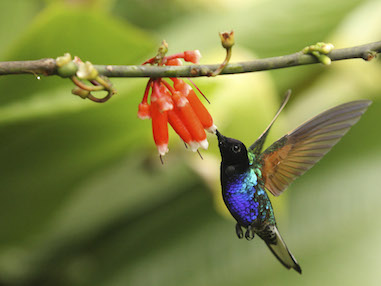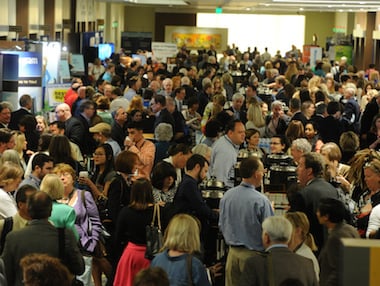Nice Above Fold - Page 396
To follow paths charted by Localore, consider these ‘new realities’
The second of two commentaries adapted from the Association of Independents in Radio’s recent report on Localore.Monday roundup: Idaho PTV's strange debate, overstated "emergency" in CPBN fundraising email
Plus: The University of Missouri's j-school welcomes "institutional fellows," and Bill Buzenberg steps down from the Center for Public Integrity.Damaged transmitter delays license renewal for Houston's KPFT
Houston Pacifica station KPFT-FM is preparing to ask the FCC for a third extension on its license renewal, a delay resulting from transmitter damage caused by a lightning strike two years ago. The station, part of the financially troubled Pacifica network, has been struggling to raise funds to replace the transmitter. It has operated at half power since March 2012 and is pursuing its third Special Temporary Authority from the FCC. By failing to operate at full power for so long, the station puts itself at risk of FCC fines. KPFT General Manager Duane Bradley said the internal divisions plaguing Pacifica aren’t helping.
President Obama calls in tribute for Kasell's 'Wait Wait' sign off
Carl Kasell capped more than three decades at NPR with a taping of his final Wait Wait... Don't Tell Me! episode and an auditorium full of admirers.Friday roundup: Matter announces third class, O'Brien wins PBS award
Plus: NPR's ombudsman explains what he's been up to, and Storycorps plays a hand in the Sept. 11 Memorial Museum.Survey finds growing group of Triple A stations looking for younger listeners
Program directors from public radio's rock and folk stations are gathered in Philadelphia for shop talk and lots of live music.
FCC green-lights rules for TV spectrum auctions
The FCC formally adopted rules today for the television spectrum auctions slated for mid-2015. Most of the provisions align with what the FCC has said leading up to today’s announcement. The commission formally declined to provide protections to low-power TV stations and TV translators. Neither facility category is eligible for protection under its current rules, the commission’s order said, and shielding them would “unduly constrain flexibility in the repacking process and undermine the likelihood of meeting the objectives for the incentive auction.” The commission will open a special filing window for LPTV and translators that provide “important services” to select new channels, and establish an special process for relocating displaced stations.Masterpiece Trust secures $3 million gift from San Diego donor
SAN FRANCISCO – Amid previews of upcoming programming at the PBS Annual Meeting, including a groundbreaking 14-hour series on the Roosevelt family from Ken Burns, came extraordinary news of a record-setting donation for Masterpiece. Executive Producer Rebecca Eaton told attendees that the icon strand, through its Masterpiece Trust, will receive $3 million from longtime supporter Darlene Shiley on behalf of herself and her late husband Donald. Shiley’s local station, KPBS in San Diego, will share a portion of the contribution. The gift triples Shiley’s previously unprecedented $1 million donation in 2012. Since its inception in 2011, the trust has raised nearly $10 million for Masterpiece and local stations designated by donors.NewsHour sticks to founding mission: "Allow the audience to reach its own decisions"
In the first installment of our interview with Linda Winslow, outgoing e.p. of PBS NewsHour, she discussed her early start in broadcast journalism and working with Fred Friendly, a founding father of public broadcasting. In this, the second of three parts, she discusses the start of the NewsHour, working as a woman in media, and the NewsHour‘s commitment to its mission. Part three will be posted next week. This transcript has been edited. Current: What did you do next after Public Broadcasting Laboratory? Winslow: I have all my life worked in public television, and one job led to another.With CPB support, public radio Triple A stations team up to showcase music videos
A new website and mobile app backed by CPB will showcase videos of new and emerging bands.Thursday roundup: Diane Rehm has no plans to retire, Big Bird is a documentary star
Plus: Free Speech Radio News sues Pacifica, and GPB announces another WRAS program.Recast formula for public TV's Nature depicts animal lives in human terms
The show's executive producer says it's "become more character-driven and, frankly, more emotional."Study finds most listeners don't mind NPR's embedded underwriting credits
A committee of NPR’s board voted May 8 to maintain embedded underwriting at its current level on network programs, despite concerns among station executives that the practice could harm listeners’ perceptions. Embedded underwriting credits appear within segments of NPR’s newsmagazines, rather than in the longer blocks of credits that punctuate the shows. The credits give sponsors dedicated placement alongside particular series and areas of coverage, such as business, health and technology. NPR ramped up efforts to sell embedded underwriting starting in 2011, and station leaders and programmers responded with worries that the credits were disrupting the flow of programs and giving listeners the idea that sponsors are influencing content.PBS's Kerger urges Annual Meeting audience to be bold amid change
The event kicked off Tuesday with its largest crowd in at least a decade.Wednesday roundup: Texas Tribune launches op-ed site, WRAS students protest GPB incursion
Plus: Celeste Headlee tells Current about plans for Middle Ground now that she has a new job.
Featured Jobs






